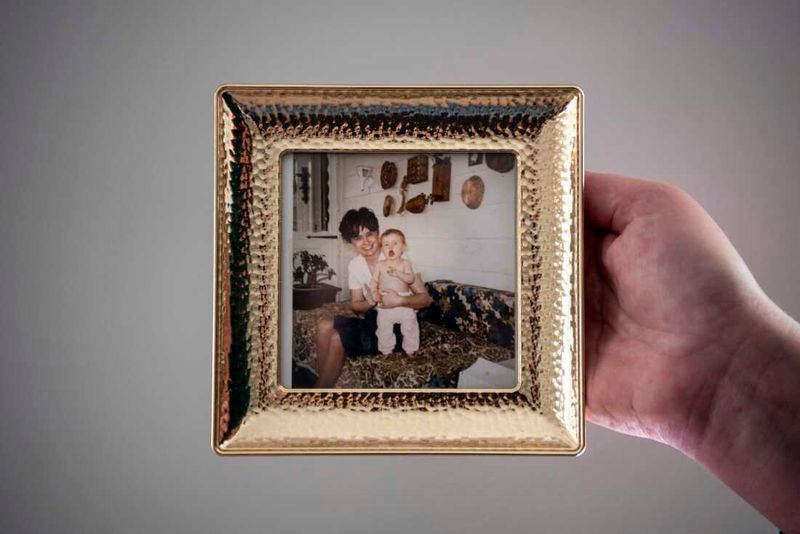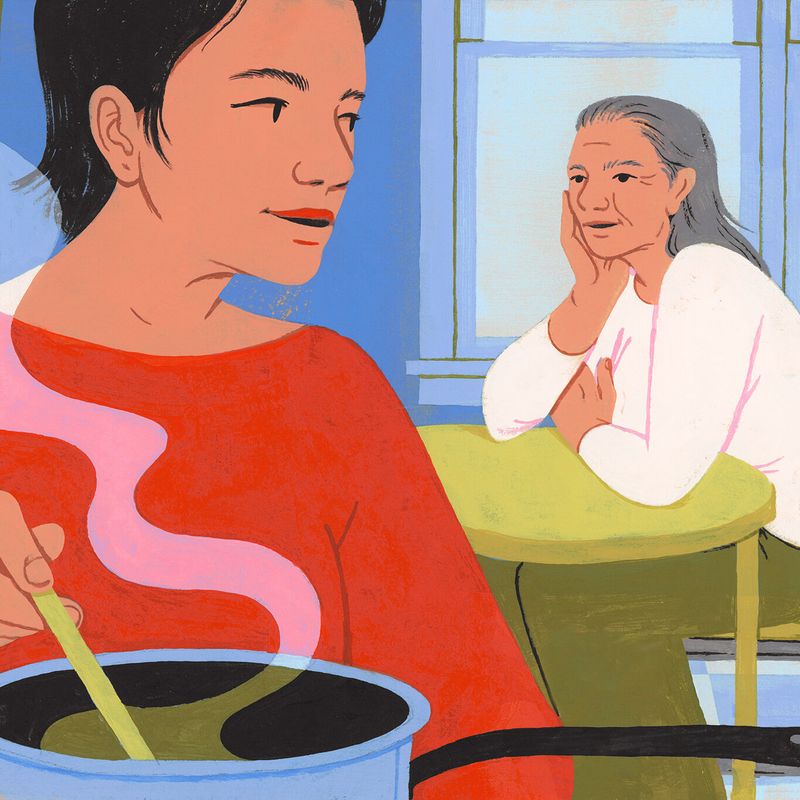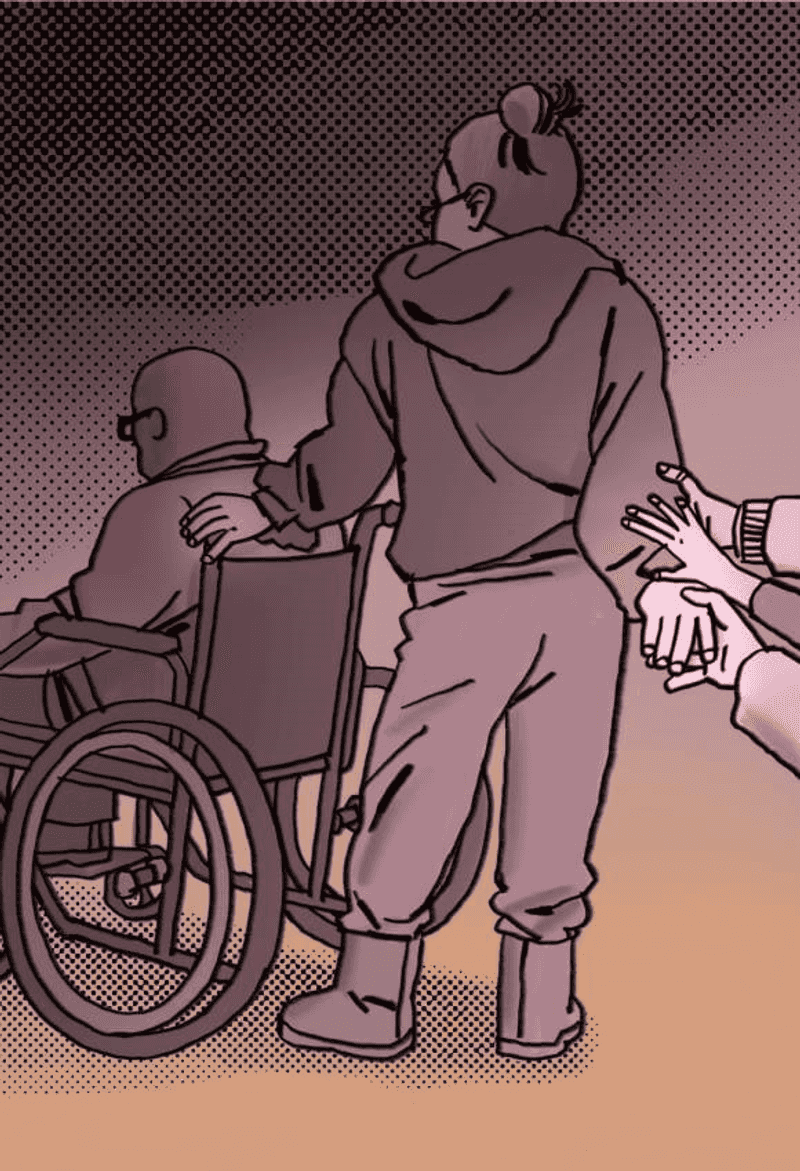Being thrust into the role of a caregiver, especially when it wasn’t a choice, unveils a series of profound challenges.
These truths are felt deeply by those who unexpectedly find themselves responsible for another’s well-being. It often demands emotional, physical, and psychological sacrifices that reshape one’s identity.
1. You often grieve the life you used to have
The past can weigh heavily when thrust into caregiving. Memories of a carefree lifestyle linger like shadows. With every task, you might recall a time when your biggest worry was personal ambition or leisure plans. Now, those days seem distant, wrapped in a haze of nostalgia. This transformation can lead to a persistent sense of loss.
The life you once knew feels like a closed chapter, replaced by a narrative of duty and sacrifice. This grief is silent, often unacknowledged, yet it shapes daily experiences. Despite this, strength emerges from adapting and finding meaning in the new reality. Embracing change becomes essential, even when it’s uncomfortable.
2. The role can feel lonely—even with family nearby
Loneliness can be paradoxical when surrounded by family. Even in a room full of loved ones, the caregiver’s journey is uniquely isolating. This solitude stems not from physical absence, but from the emotional distance that caregiving can create. While others share laughter, the caregiver often navigates a sea of unspoken worries and responsibilities.
This emotional barrier can feel impenetrable, creating a sense of being alone in a crowd. The role demands an inner resilience, as connections may seem more superficial amidst the weight of caregiving duties. Finding solace in small moments becomes crucial amid the demanding responsibilities.
3. Resentment can creep in without warning
Resentment is a stealthy companion for caregivers. It sneaks in during moments of exhaustion or when personal time feels stolen. Tasks pile up, and old grievances resurface unexpectedly. This emotion is natural but can be unsettling, as it conflicts with the love and duty one feels. The weight of responsibility can make small irritations grow into significant sources of tension.
Recognizing and addressing these feelings is vital to maintaining a balanced emotional state. Exploring personal time and setting boundaries can help alleviate the creeping sensation of resentment, providing a healthier caregiving environment.
4. You’re expected to “just know” what to do
The assumption that caregivers have innate knowledge is a common misconception. It often feels like you’re expected to be an expert without training. Navigating medical jargon and complex care routines can be daunting. This expectation can lead to feelings of inadequacy and stress. The pressure to perform perfectly can overshadow the learning process.
It’s important to acknowledge that mistakes are part of the journey. Seeking help and education is crucial. Embracing the learning curve with patience can transform uncertainty into confidence, fostering a more supportive caregiving environment.
5. Self-care starts to feel selfish
In the world of caregiving, self-care can seem like an unattainable luxury. The demands of caring for another often overshadow personal needs. Activities that once brought joy are sidelined, and guilt looms large when contemplating a break. This can create a cycle where self-care feels like selfishness. However, neglecting personal well-being can lead to burnout, affecting caregiving quality.
Prioritizing self-care is essential, not indulgent. Moments of rest and reflection rejuvenate both body and mind, enabling more compassionate care. Reframing self-care as a necessity fosters a healthier balance in the caregiving journey.
6. You miss being seen as more than just “the caregiver”
Identity shifts are a profound part of caregiving. The label “caregiver” can overshadow personal attributes, reducing one’s identity to a single role. It’s easy to feel unseen beyond the responsibilities. The longing to be recognized for other skills, passions, and traits can be strong. This yearning for acknowledgment can foster feelings of invisibility.
Reclaiming identity involves nurturing pre-existing interests and connections. Engaging in activities outside caregiving helps maintain a sense of self. Balancing caregiving with personal expression can enrich both the caregiver and the care recipient, fostering a more fulfilling experience.
7. Relationships with others often shift or fade
Caregiving can transform social dynamics. Friendships might wane as responsibilities increase, creating a palpable shift in connections. Invitations decline, and shared experiences diminish. The isolation can feel profound, as others may not understand the demands tied to caregiving. However, new support networks often emerge, offering solidarity and understanding.
Navigating these changes requires open communication and adaptability. Embracing new relationships while nurturing existing ones can provide a sense of community, alleviating the isolation that often accompanies caregiving. Building a balanced social life enhances resilience in the caregiving journey.
8. You carry guilt no matter what choice you make
Guilt weaves through every decision a caregiver makes. Whether choosing between personal needs and caregiving duties, the feeling of letting someone down is pervasive. Each choice comes with a sense of responsibility, often leading to doubt and self-reproach. This emotional burden can hinder decision-making, creating a cycle of guilt.
Balancing empathy with pragmatism is essential. It’s important to remember that perfection is unattainable. Accepting imperfection and seeking support can alleviate some of the emotional strain. Empowering oneself with understanding and self-compassion fosters a more sustainable caregiving experience.
9. There’s little room for your emotions
Caregiving often demands emotional stoicism. The focus is so heavily on the care recipient that personal emotions take a backseat. Caregivers might suppress feelings to maintain composure, leading to emotional fatigue. This lack of emotional expression can become overwhelming, manifesting in unexpected ways.
Finding an outlet, whether through talking, writing, or creative activities, is crucial. Honoring one’s emotions allows for a healthier caregiving dynamic. Establishing spaces for emotional release ensures that caregivers remain attuned to their own needs, fostering an environment of mutual respect and understanding.
10. You become hyper-aware of time
Time becomes a precious commodity in caregiving. The ticking clock is ever-present, marking the passage of moments spent in service. This awareness can bring both urgency and anxiety. Schedules dominate daily life, dictating both minute and major decisions. Finding balance amid this time-sensitive environment is challenging.
Prioritizing tasks and setting realistic goals helps manage the temporal demands. Embracing mindfulness practices can ease the pressure, allowing caregivers to appreciate small victories and moments of calm. Despite the constant ticking, finding peace within the constraints of time fosters resilience.
11. Your personal goals fall off the map
Personal aspirations often take a backseat to caregiving responsibilities. Dreams and goals, once vivid, can fade into the background. This shift can feel disheartening, as personal achievements seem out of reach. However, integrating small, achievable objectives into daily routines can help preserve personal ambitions.
Re-evaluating goals in the context of current realities creates a more attainable roadmap. Patience and adaptability are key. By aligning personal goals with caregiving duties, a sense of accomplishment and purpose can flourish, enriching the caregiving experience with renewed motivation and direction.
12. People assume you’re “handling it” just fine
Appearances can be deceiving. Caregivers often present a strong front, masking the internal challenges faced daily. This can lead to assumptions that everything is under control. However, beneath the surface lies a myriad of struggles. The pressure to maintain this facade can exacerbate feelings of isolation.
It’s vital for caregivers to communicate their needs openly. Seeking support and sharing experiences can break down misconceptions, fostering understanding and empathy. Authenticity in expressing emotions creates a supportive environment, dispelling the myth of effortless caregiving.
13. Decision fatigue is real
Decision-making becomes a relentless task for caregivers. Each day is filled with choices, both minor and monumental, leading to decision fatigue. This mental strain can result in feelings of overwhelm and paralysis. The constant need to weigh options, often under pressure, can be exhausting. To combat this fatigue, simplifying routines and delegating when possible are essential strategies.
Establishing a support system for decision-sharing alleviates the burden. Prioritizing self-care and mindfulness practices aids in maintaining mental clarity, ensuring more thoughtful decision-making amidst the caregiving chaos.
14. The future feels both predictable and terrifying
Anticipating the future in caregiving brings mixed emotions. The path ahead can seem clear yet daunting. Predictability offers some comfort, yet the potential for unforeseen challenges looms large. This duality creates a complex emotional landscape. Balancing hope with realism is pivotal. Preparing for future scenarios while remaining flexible ensures resilience.
Embracing uncertainty with an open mind transforms fear into opportunity. By focusing on present moments and gradual planning, caregivers can navigate future challenges more confidently, cultivating a sense of preparedness amidst the unknown.
15. It’s harder to ask for help than most people realize
Requesting assistance can feel daunting for caregivers. Pride and fear of imposing often hinder reaching out. This reluctance stems from a desire to appear capable and in control. However, recognizing the importance of support is crucial. Asking for help is a strength, not a weakness. Building a network of assistance, whether through friends, family, or professional services, can lighten the load.
Encouraging an open dialogue about needs fosters a more sustainable caregiving environment. By embracing interdependence, caregivers can find relief and support, enhancing both personal well-being and caregiving quality.
16. You start mourning while they’re still here
Anticipatory grief is a silent companion in caregiving. The realization of impending loss weighs heavily, even as loved ones remain present. This emotional complexity is challenging, as caregivers navigate joy and sorrow simultaneously. Acknowledging these feelings is essential for emotional health. Creating moments of connection and memory-making can bring solace.
Sharing stories and engaging in meaningful activities enriches the caregiving journey. Embracing the present, while preparing for the future, fosters resilience. Balancing hope with acceptance allows for a more compassionate caregiving experience, honoring both past and present moments.
17. You’re stronger than you feel—but it shouldn’t have to be this hard
Caregiving reveals an inner strength often underestimated. Despite the challenges, resilience shines through. However, this strength should not be perpetually tested. The demands of caregiving can feel overwhelming, pushing limits beyond what seems bearable.
Acknowledging the need for support and resources is vital. Building a community and accessing professional guidance helps sustain this strength. Recognizing personal limits ensures long-term well-being. Caregivers deserve compassion and understanding, lightening the load. By fostering a supportive environment, the journey becomes more bearable, celebrating resilience without undue hardship.


















